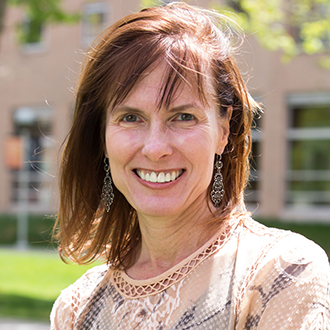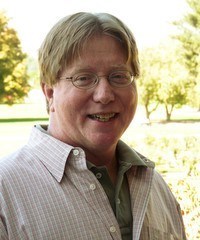Patients aren’t the only ones affected by cancer. Often alongside patients are family caregivers who struggle to keep their own lives on track while supporting their loved one’s treatment and recovery. It’s not easy. For example, a study showed that stress increases a family caregiver’s chance of death by 63 percent over four years. Now a nearly $4M grant from the National Cancer Institute to researchers at University of Colorado Cancer Center seeks to lessen the impacts of stress specifically on cancer caregivers who are also employed. The project hopes to help caregivers manage the demands of their jobs and their lives, while also meeting the day-to-day needs of their loved one with cancer.
The grant leverages the expertise of co-principal investigators Cathy Bradley, PhD, a health economist, and Mark Laudenslager, PhD, a stress researcher.
Dr. Bradley, Deputy Director and the David F. and Margaret Turley Grohne Endowed Chair for Cancer Prevention and Control Research at CU Cancer Center, focuses her research on defining the associations between health insurance and employment on cancer outcomes, while identifying socioeconomic disparities in the delivery of and response to care. Dr. Laudenslager, is a professor in the CU School of Medicine Department of Psychiatry, and director of the Behavioral Immunology and Endocrinology Laboratory. His works focuses on the physiological impacts of stress such as increased inflammation and shortening of telomeres, the protective caps on chromosomes that shorten with stress and aging.
The current study will test the ability of an intervention that was proven effective in reducing stress in cancer caregivers when delivered face-to-face, now transformed by Laudenslager and former fellow, Dr. Nicole Amoyal-Pensak, for delivery via a website (Pep-Pal) at the caregiver’s discretion.
“Mark has developed effective interventions to reduce stress in caregivers. My research is on employment outcomes of people with cancer. We intersect at the point of employed caregivers,” Bradley says.
Pep-Pal will be delivered via a mobile application and/or website including eight 20-minute sessions: (1) Introduction to Stress Management, (2) Stress and the Mind-Body Connection, (3) How Our Thoughts Can Lead to Stress, (4) Coping With Stress, (5) Strategies for Maintaining Energy and Stamina, (6) Coping With Uncertainty, (7) Managing Relationships, and (8) Getting the Support You Need. In addition, the website includes short (3-minute) videos demonstrating an activity or exercise to decrease stress, focusing on relaxation and mood.
“The caregiver actually gets to select between face-to-face meetings with a social worker, video chat with the social worker, or using Pep-Pal at their discretion. The idea is to maximize caregiver convenience and hopefully keep them more engaged during the three-month program,” Laudenslager says.
The study follows caregivers for one year, starting when the caregiver’s patient begins “adjuvant” therapy (used after primary treatment to keep cancer from returning).
“The grant will allow us to look at whether less stress correlates with improved health and employment outcomes for the caregivers – and perhaps result in improved outcomes for patients,” Bradley says.
If the intervention proves effective in employed caregivers, the team hopes the program could provide a model for reducing caregiver stress, and perhaps be useful with health conditions beyond cancer.
If you are a caregiver for a patient with a solid tumor and are interested in contributing your experience in a focus group or as part of this study (beginning in January), please contact the Behavioral Immunology and Endocrinology Laboratory at BIEL@CUANSCHUTZ.EDU.





